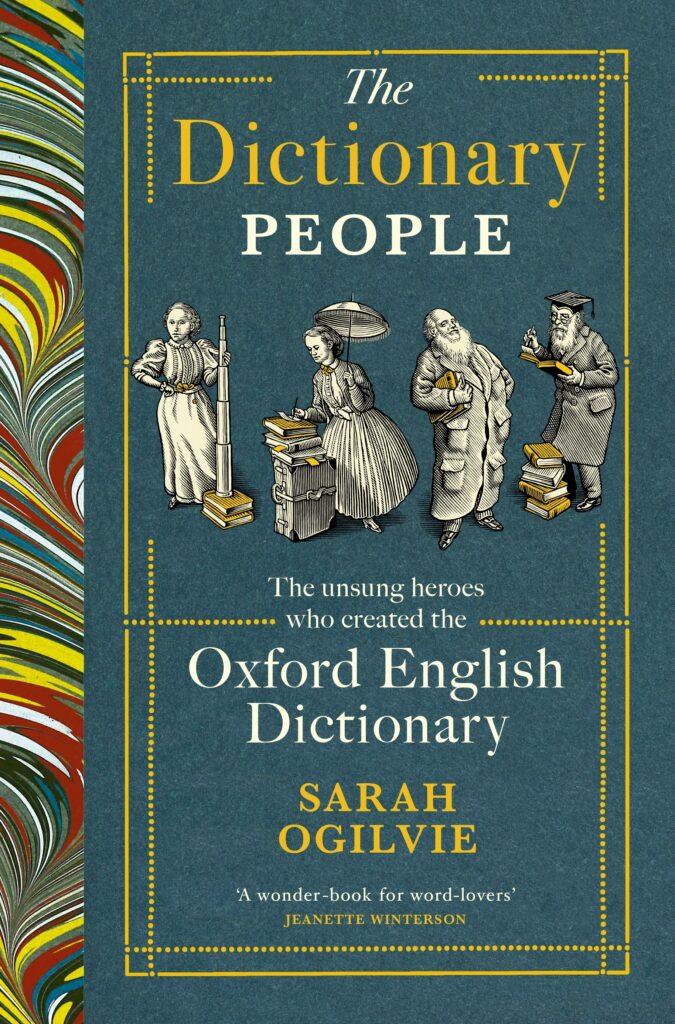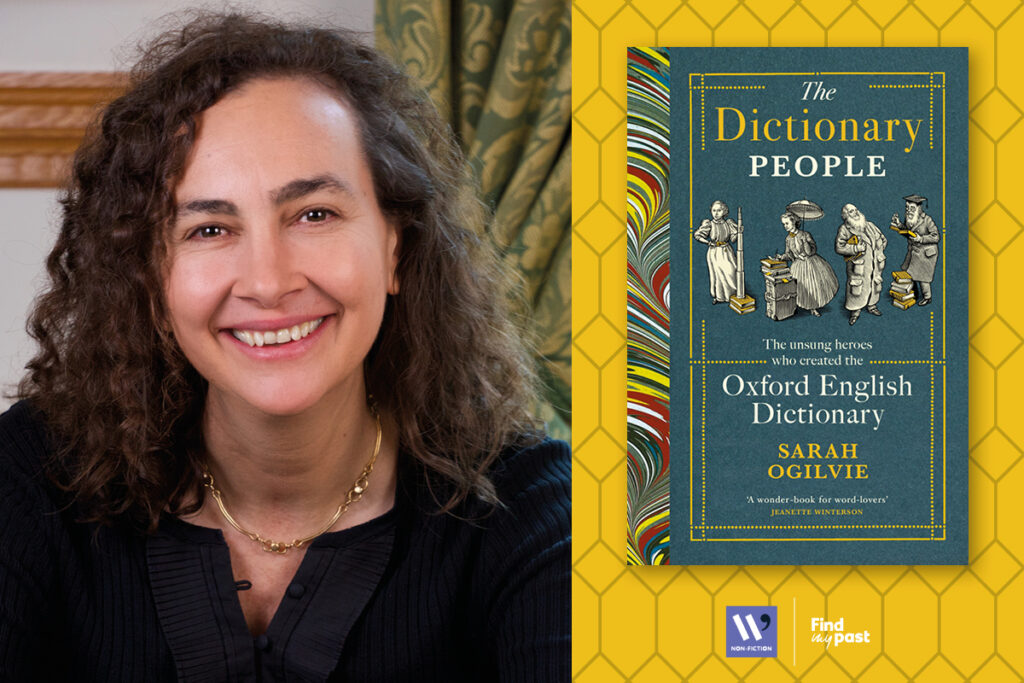The Dictionary People: The Unsung Heroes who Created the Oxford English Dictionary by Sarah Ogilvie reveals the full story of the making of one of the most famous books in the world – and celebrates the extraordinary efforts of the Dictionary People.
Longlisted for the 2024 Women’s Prize for Non-Fiction, judge Anne Sebba said ‘I adore this book because it’s about words, and what could be more important than words and the way we use them.’
To find out more about the book we spoke to Sarah about her writing, research and current reads.

Describe your book in one sentence as if you were telling a friend.
It is about the people around the world who helped create the Oxford English Dictionary in the nineteenth century.
Did you have any revelation moments when writing your book? When the narrative and your objectives all fell into place?
Yes, I had quite a few revelation moments, like when I discovered that the Dictionary People included three murderers and four inhabitants of psychiatric hospitals; many more women than we thought; and hundreds of amateurs and autodidacts, rather than the scholarly elites. I had been struggling with the structure of the book for many years: how to tell an overarching narrative about the creation of the dictionary, while ensuring that I featured the most captivating lives within the 3000 people? I tried many different structures and nothing was right. Until, during the night, I woke up with the solution: the alphabet! I would structure it A-Z, and everything fell into place.
What is the one thing you’d like a reader to take away from reading your book?
I want the reader to be as moved and inspired as I was by the joy, dedication, and devotion of the Dictionary People – especially the hundreds of women – who gave freely of their time and intellects to help compile one of the most extraordinary and uplifting examples of collaborative endeavour in history.
Which other female non-fiction writers inspire you and why? Any particular title?
I am inspired by writers who bring non-fiction to life by connecting their subjects with the moral imagination and exploring what makes us human, especially writers who tell history from the bottom up and reclaim the stories of those who have been forgotten, ignored, or on the margins: Maya Angelou (I Know Why the Caged Bird Sings), Kate Mosse (Warrior Queens & Quiet Revolutionaries), Toni Morrison (Playing in the Dark), Hermione Lee (Virginia Woolf), Francesca Wade (Square Haunting), Claire Tomalin (Invisible Woman, Samuel Pepys), Jenny Uglow (The Lunar Men), Dava Sobel (Glass Universe), Suzannah Lipscomb (1536), Drusilla Modjeska (Stravinsky’s Lunch), Marion Turner (Chaucer), Janet Todd (Mary Wollstonecraft), and Janina Ramirez (Femina).
What is the best piece of writing advice you have ever received?
Describe the sights, sounds, tastes, and touch of the scene.
What book is currently on your nightstand?
Superinfinite by Katherine Rundell








